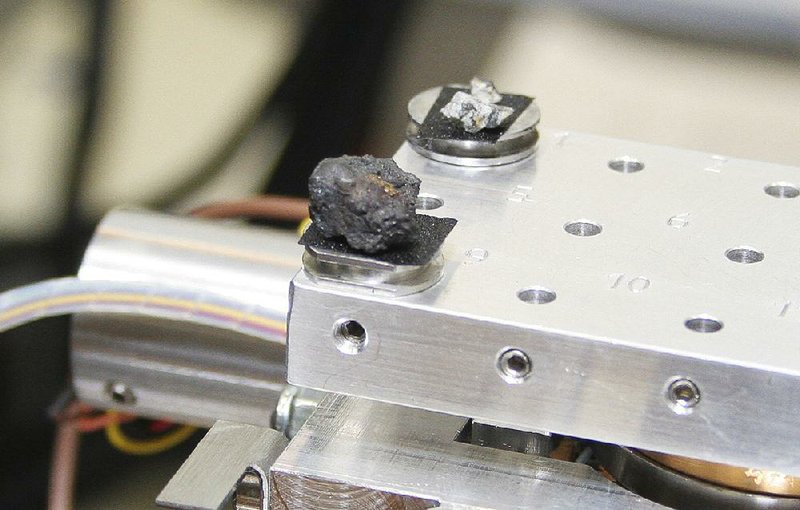MOSCOW — Scientists have found more than 50 tiny fragments of a meteorite that exploded over Russia’s Ural Mountains, and preliminary tests are turning up information about its contents.
Meanwhile, some local residents interested in the black market value of the fragments searched for their own pieces of the meteorite, and sales offers on the Internet led police to warn purchasers to prepare for possible fraud.
The meteorite - which injured nearly 1,500 people and caused widespread property damage in the city of Chelyabinsk on Friday - was the largest recorded space rock to hit Earth in more than a century. Health officials said 46 of the injured remain hospitalized.
Viktor Grokhovsky, who led the expedition from Urals Federal University, said Monday that 53 fragments of the meteorite had been plucked from the ice-covered Chebarkul Lake. He said they are smaller than half an inch in size, about 10 percent iron, and belong to the chondrite type, the most common variation of meteorites found on Earth.
Friday’s meteorite left a 20-foot-wide hole in the ice covering the lake. Divers inspecting it have found nothing at the bottom, but Grokhovsky said a fragment as large as 20-24 inches could eventually be found there.
The area’s governor estimated the damage at $33 million and said he hopes the federal government will provide at least half that amount.
Lidiya Rykhlova, head of the astronomy department at the Moscow-based Institute for Space Research, said experts have drafted a program that envisages building new powerful telescopes, including space-based ones, to warn against potentially dangerous asteroids, comets and other threats. The 10-year program would cost $1.9 billion.
That huge price tag has raised many eyebrows, drawing a sarcastic post from Alexei Navalny, an anti-corruption crusader and opposition leader.
“You’d better fix roads in Chelyabinsk. Holes on them cause more damage than 100 meteorites,” he said.
Front Section, Pages 2 on 02/19/2013

